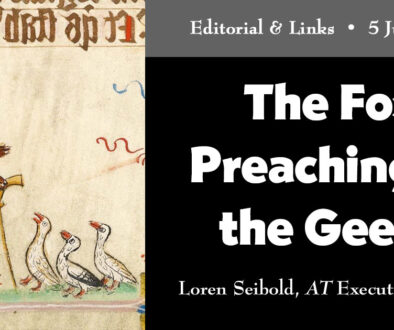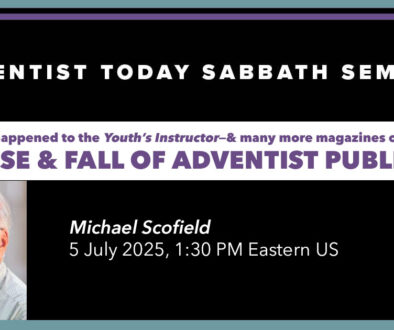Sharing Scripture for March 14 – 20, 2021
[symple_heading style=”” title=”Desire of Nations” type=”h1″ font_size=”40″ text_align=”center” margin_top=”0″ margin_bottom=”30″ color=”undefined” icon_left=”” icon_right=””]
This is a tool for you to use if you lead a Sabbath School (SS) class or small group. It is keyed to the Bible texts used in the current week’s Adult SS lesson and includes a brief story from current news you can use to introduce the discussion and then a series of discussion questions in a relational pattern designed to build fellowship and spiritual reflection.
For use: March 14 – 20
Texts: Isaiah 59; Isaiah 59:15–21; Isaiah 60:1, 2; Isaiah 61; Isaiah 61:2
“I reached a point of saying, ‘This is who I am, a junkie who will never get better.’”
These are the words of Vito Baldini, an ordained minister who founded the nonprofit Small Things, distributing food to residents of Philadelphia who struggle to get by. Before finding his calling in helping others, Baldini—while wrestling with a heroin addiction—was convicted of petty theft, illegally selling firearms, and illegal drug possession.
Reformation came when he finally decided to accept God, praying, “OK, I’ll try it Your way,” and stepped into rehab. His experience led him into a life of helping others—with no strings attached.
Baldini, like the rest of us, had once found himself stumbling around in the bleak world articulately painted by Isaiah’s prophecies. Chapter 59 of the wise prophet’s book lays out the cold, hard facts: “But your iniquities have separated you from your God; … No one calls for justice, nor does any plead for truth. They trust in empty words and speak lies; they conceive evil and bring forth iniquity” (Isaiah 59:2, 4 NKJV). God, therefore, must deliver justice. But the chapter ends with a twist: justice is not delivered by annihilating sinners from the world, but by offering them a Redeemer and the Spirit—with no strings attached.
Isaiah 60 picks up with the glorious story of redemption, leading into Isaiah 61 which calls for all of us to repent in response to God’s grace, as well as to share the gospel and God’s love. Paul echoes these words of Isaiah in Romans 3:20-26, explaining that the law has no power to save us. We are not saved by works. Rather, John 17:17 says we are sanctified by the Truth.
In other words, God saves those who have done nothing deserving of redemption. Our repentance is a response to grace, not a precursor.
As with you, me, Paul, and everyone in between who accepts God’s gracious gift, Baldini was not deserving of redemption, but by God’s grace he lives a changed life and inspires others to grow in the Lord. “I can’t solve poverty,” he shares, “but I can give someone their next meal. And to me that small act of love and kindness leads to change.”
[symple_divider style=”solid” margin_top=”20″ margin_bottom=”10″]
Connecting: Over your online connections if you are not yet meeting in person, share three words that describe how you feel/felt dealing with your most challenging personal demons. Next, share three words describing how it feels/felt giving them up to God.
Sharing: Why do stories like that of Debora Lapointe, who forgave her son’s killer, often leave us in shock and tears?
- They mirror God’s forgiveness of us
- They reveal God’s character in us
- They give us faith in the human race
- They reveal that the person is closer to God than we are
- They don’t make me cry…
- Other:
Applying: Have you ever gone through a drive-thru and found out the customer in front of you paid for your order? How did that make you feel? If you are financially able, take a page out of Baldini’s script and pay for someone’s order the next time you visit a food stand, taqueria, or drive-thru. Or, when COVID restrictions lessen, volunteer at a local food drive.
Valuing: Some people erroneously quote James 2:17, claiming that faith without works is fruitless. Pray for the Spirit’s guidance and then read James 2 with new glasses, interpreting “works” in this context: moral deeds, or actions based on love. Then, journal a short reflection in response to the reading.
~ Stefani Leeper




